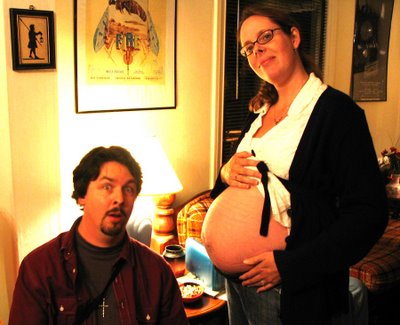
I've always found the idea of having a guilty pleasure to be highly suspect. It strikes me as a way to keep other people from noticing your poor taste, be it in books, fashion styles, or what-have-you. Usually when somebody else points out a guilty pleasure, it is something truly awful. Then again, it wouldn't involve guilt if it was sublime, would it?
My own poor taste is clearly evident. One has to look no further than my dvd collection (which admittedly is quite small) to see an irrefutable example. I recently added to it one of the worst movies ever committed to celluloid: Black Belt Jones.
Long days back we used to rent this movie almost weekly, and I thought we had found the blue sapphire diamond of blaxploitation flicks. You could hear laughter in the house late into the night, orchestrated by corny dialogue and lo-fi karate explosions. That was years ago, and recently I got to thinking how long it had been. What would it be like to revisit BB and friends? I decided to find out, located a cheap copy on ebay and purchased it.
Sitting down to watch this gem from 1972, I found myself laughing, yes, just like old times. Yet it was laughter borne more of pain than joy: Black Belt Jones had not aged well. It may very well be the worst movie I have ever seen. It is like a home movie that should have stayed in the vault. It is bad -and I don't mean baaaadaaaassss, I mean BAD bad. Look up the word "bad" in Webster's and it cites BB.
Here's an example of the grade school dialogue. BB has been called in by his government superior -he's some kind of agent for an unnamed group that appears to part of the FBI. His superior (inevitably white) tells BB that he has to go into the ghetto and help break up a criminal scheme. BB refuses, saying, "You ought to write comedies for television."
His superior replies, "But can it be done?"
To which BB says, "Don't believe the myth that all (black people) are invisible."
When BB leaves the room, his superior starts chomping on a cigar and tells his partner, "He'll do it." Apparently BB has worked out some kind of code with his minders that the audience isn't privy to, because to me it sounded like they just spewed a bunch of gibberish. But I guess I don't know how to write good movie dialogue, do I?

BB has to help a friend called Pop save his karate school from a bad guy named "Pinky". Pop is ostensibly a teacher of kung fu, but apparently nobody told that little bit of information to the actor who portrays him, the seventies icon with the seventies icon name, Scatman Crothers. The scenes in which Scatman uses his "skills" to defeat thugs are so laughable that they go beyond the laugh horizon into a dark, lonely void of despair. Not since Margot Kidder's drug-addled turn as Lois Lane in Superman II (where she is visibly intoxicated most of the time) has a noted actor been so humiliated onscreen.
Fortunately Pop doesn't last long in the movie. Enter the daughter: Sydney.
When Sydney enters the scene, she delivers the most memorable dialogue and action in the movie. She is clearly a product of her times. The early seventies were not only the age of Gloria Steinem but Angela Davis too: feminism combined with black revolution. Sydney all but personifies the Black Panther movement, and she takes guff from no man, woman or pimp, a kind of third-rate Foxy Brown. BB quickly finds his hands full when Sydney shows up to preserve her father's school.
When BB receives a hot tip, Sydney offers to come along. BB replies by telling her, "Why don't you go do the dishes or something?" He points to the sink, where we can see a pile of dirty plates and mugs.
Sydney pulls out a revolver and shoots up the entire sink, reducing the dishes to powder. "They're done," she says.
You just don't mess with Sydney.
Later, on the beach, BB propositions her and she rejects him. "My cookie would kill you," she tells him.
There are many other citable instances of why Black Belt Jones is the worst movie ever made. Pinky's "rap" for instance, burned in my memory forever but to which I will not expose my tender readers' hearts and minds.





































